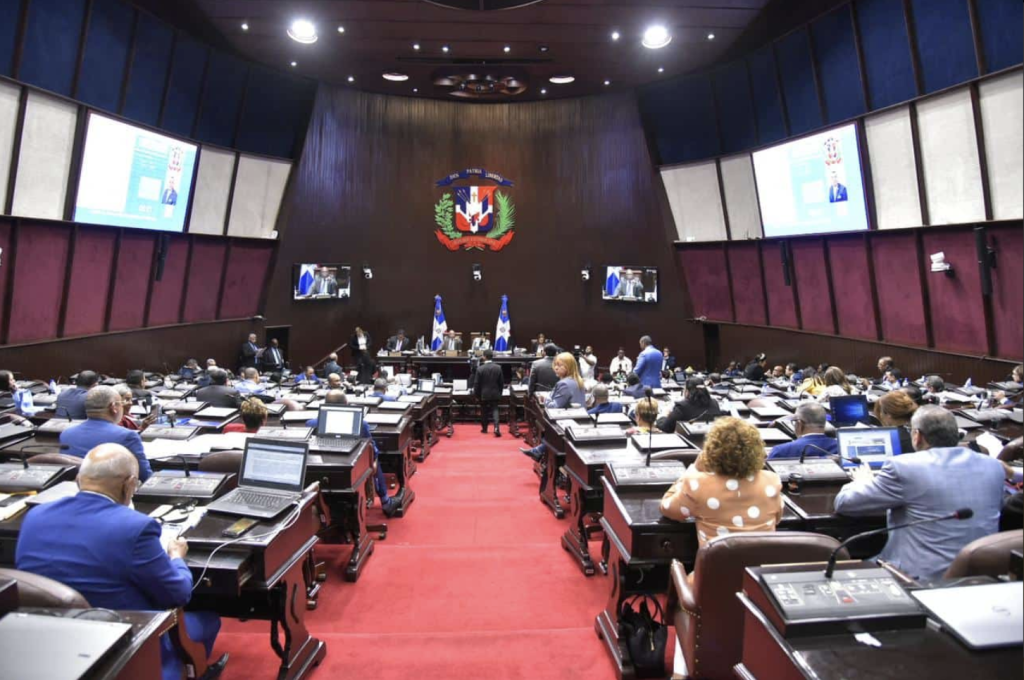
The large number of alternate proposals and suggested changes to the Penal Code the Chamber of Deputies received from the Senate seems to make it unlikely the deputies will have sufficient time to ram the bill through the Chamber and still give time for it to return to the Senate if there are changes.
The Senate bill advocates argue the country cannot wait more to replace the centuries-old code. The bill under study has the strong support of the president of the president of the Senate, Ricardo de los Santos (PRM-Sanchez Ramirez), the president of the Chamber of Deputies, Alfredo Pacheco (PRM-National District), the president of the Penal Code Special Review Committee, Alexis Jimenez and its proponent, senator Ramón Rogelio Genao (PRSC-La Vega). Genao has been a strong ally of the PRM in Congress. These legislators argue this is the same bill that was subject to numerous reviews in the past. Yet this is the same bill that was vetoed and rejected by the media, civil society, business groups and medical societies for the same reasons. Former President Danilo Medina vetoed the bill on two occasions.
The deadline for passing the Penal Code is Friday, 26 July 2024, unless the Presidency requests an extension of the legislature. Normally, the legislators do not work on Fridays. But the Chamber of Deputies leadership has the deputies working overtime in the interest of passing the bill in this legislature. The motives for the rush has the general public perplexed. The new legislature begins 16 August 2024.
The spokesman for the opposition parties, the Dominican Liberation Party (PLD), Luis Henríquez, and the People’s Force (FP), Tobías Crespo, respectively, said on 17 July that there was not enough time remaining for the special committee that was appointed on Thursday, 11 July, to issue a report incorporating the recent recommendations.
The president of the special committee, Alexis Jiménez, had requested the committee have until Tuesday, 23 July to present the report to the floor of the Chamber of Deputies. But the motion was not presented during the session and instead, Alfredo Pacheco, president of the Chgamber of Deputies instead proposed that the three alternate bills that have been presented be considered in the session that was called for 11am on 18 July.
In addition to the three alternate bills, the special committee has received hundreds of other proposals for changes from organizations outside of the legislature.
The National Police, represented by General Esteban Figuereo, and the Attorney General’s Office (PGR), with the presence of Deputy Attorney Pedro Frías, presented their observations on these matters to this delegation.
The Cabinet for Children and Adolescents (GANA) and the National Council for Children and Adolescents (CONANI) are requesting the deletion of paragraph III of article 123 of the draft Penal Code on domestic violence and proposed replacing it with another that definitively prohibits the use of violence as a form of disciplinary correction. Conani says that the article in the Penal Code contradicts the national and international legal framework on children and adolescents.
Likewise, women’s groups urge the legislature understand that the three grounds for abortion are a medical issue, not a philosophical one. President Luis Abinader in the past has said he is in agreement with the including of the abortion exceptions. In the Americas, only El Salvador, Nicaragua, Honduras and the Dominican Republic have not incorporated the three exceptions.
Critics of the Penal Code as passed in the Senate argue that it accommodates corruption and impunity of those in government, including the legislators, the military and churches that commit crimes. There are also strong protests against clauses that violate regulations already in place that favor women and children.
During a panel on Esta Noche con Mariasela, several of these issues and the absurdities in the Penal Code under study were presented by lawyers Francisco Alvarez, Carlos Salcedo and deputy Jose Horacio Rodriguez and senator Faride Raful, while the Senate bill was defended by its proponent Ramon Rogelio Genao and by the Special Committee president Alexis Jimenez.
A panel organized by Corripio Media Group with El Dia director Jose Monegro and lawyers Francisco Álvarez, Laura Acosta and María del Pilar Zuleta concluded if the Senate bill passes, it will create more problems than it will solve. The Senate bill articles, they say, contradict several laws that are in effect.
Follow the story:
Esta Noche con Mariasela
Diario Libre
Diario Libre
Diario Libre
Hoy
Hoy
El Dia
El Dia
El Dia
18 July 2024

